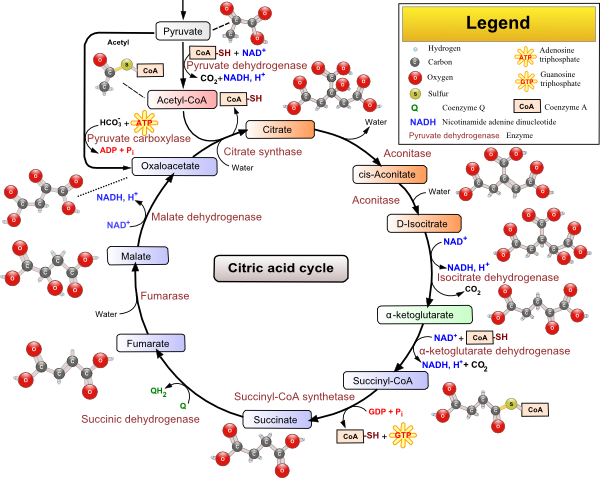Metabolomics aims to identify, qualitatively and quantitatively, all of the metabolites present in a biological system. These metabolites are the product of enzymes that catalyse the chemical reactions that constitute “life”. Metabolomic analysis can provide a chemical “fingerprint” of an organism, providing insights into how organisms respond to environmental change or disease. Metabolomics promises new ways of investigating many different aspects of biology, from the study of human disease to the development of more efficient agricultural breeds and practices.
The building blocks of life.
Metabolites are the chemical building blocks required for the growth and maintenance of cells. These building blocks are not only needed to build the proteins, genes and membranes that form cells, but are also the source of chemical energy used by cells to drive energy dependent processes. Metabolites are produced by chemical reactions that are catalysed by enzymes. A series of these chemical reactions is called a pathway, and the connection of these pathways is metabolism. Metabolism is as complex as life itself, as molecules are constantly synthesized, modified and degraded in response to the changing environment and the internal requirements of the organism. It is the dynamic nature of metabolism that makes the quantitative study of metabolites necessary.
Metabolites and Genes.
As metabolites are produced by protein based enzymes, metabolites are the ultimate end products of gene expression. As such, metabolites can operate as chemical “fingerprints”, providing insights into gene function and regulation that may not be clearly observed by measuring other biological parameters. The metabolome is often closely related to the phenotype of an organism, being more sensitive than the proteome and the transcriptome to external factors that contribute to phenotypic differences between specimens. The dynamic state of the metabolome makes it ideal to identify key biological events that occur in response to a changing environment or disease. However, while metabolomics promises to lead scientists towards a greater understanding of biology, considerable technical challenges remain. The metabolome contains many hundreds of chemicals, often with very different chemical properties. Developing analytical techniques that can catalogue and measure the full range of these molecules is still a significant challenge for metabolomic researchers.
Diverse Analytical Techniques
Metabolites vary greatly in terms of their chemical structures, differing by chemical and physical properties including size, structure, polarity, volatility and solubility. There is still no single analytical technology capable of analysing this chemical diversity. In order to capture this complexity a number of analytical technologies are employed that enable the separation, detection and quantification of chemically diverse metabolites. The most commonly utilized techniques are Mass Spectrometry (MS) in combination with Gas Chromatography (GC-MS) or Liquid Chromatography (LC-MS), as well as Nuclear Magnetic Resonance Spectroscopy (NMR). The data collected by mass spectrometry or NMR is then analysed with sophisticated data analysis and visualisation tools that allow researchers to understand the patterns of change, as metabolite levels rise and fall in response to genes and the environment. It is out of these complex data patterns that metabolomic scientists hope to extract new insights into biology and deliver practical solutions to the problems of the 21st century.
The Citric Acid Cycle [image: wikipedia]

